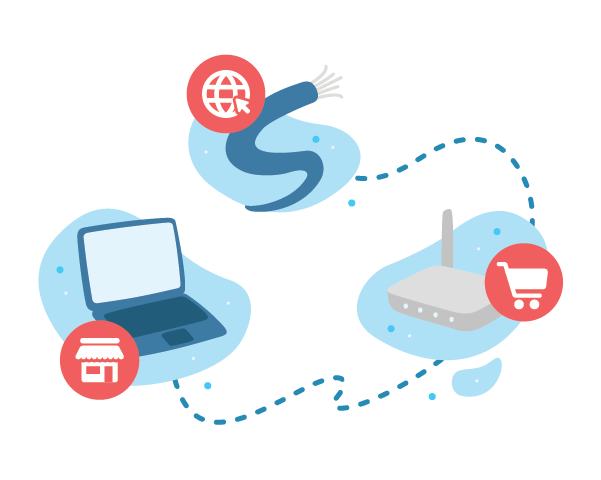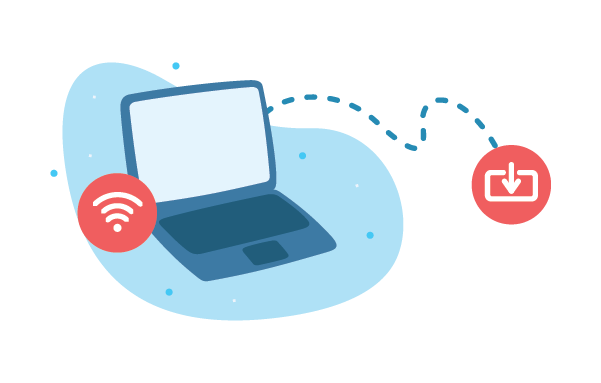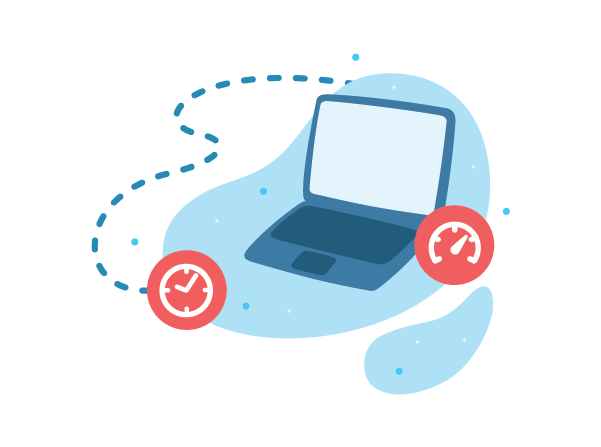
The National Broadband Network (NBN) is Australia’s wholesale internet provider. This means that when you sign up for an NBN plan, you will need to order the service through a telco (e.g. Telstra, Optus, Vodafone etc.).

Are you ready to sign up to an NBN internet service?
If you have home internet but are not yet on the NBN, your current telco will send you a letter telling you when the NBN is coming to your area.
You can also check NBN Co’s website to find out when it will be available.
How do you choose an internet provider?
You’ll first need to decide what speed plan you’ll choose. This will depend on how many people will be using the internet in your house and how you use it.
The more people using the internet at the same time, the slower it will go.

Telcos will usually advertise internet plans with two speeds:
• The top speed that the NBN internet plan can achieve.
• The typical speed of each NBN internet plan in the busy evening period (7-11 pm).

Picking your speed
| Download speeds | Upload speeds | Suitability | |
|
Home Basic I |
Up to 12 Mbps Around 7Mbps during busy hours |
Up to 1Mbps |
Basic internet connection Enough to stream video but not suitable for heavy internet users (like gamers) |
|
Home Basic II |
Up to 25 Mbps Around 15-20Mbps during busy hours |
Up to 5Mbps |
1-2 person households Suitable for most purposes. May notice slowing if more than 2 people are using at same time |
|
Standard |
Up to 50Mbps Around 30-40Mbps during busy hours |
Up to 20Mbps |
3-4 people households All people in household can use at the same time without service slowing |
|
Fast |
Up to 100Mbps Around 60-90Mbps during busy hours |
Up to 40Mbps |
Large households or anyone who regularly downloads or uploads large files such as movies or games |
|
Superfast (NBN 250) |
Up to 250Mbps Around 150-215Mbps during busy hours |
Up to 25Mbps |
5 or more people online at the same time. Households or anyone who regularly downloads or uploads many large files at the same time, such as movies or games. |
Picking your provider
Comparing plans across different telcos can be overwhelming. Comparator websites like WhistleOut and Finder can be useful tools to quickly compare internet plans from a range of telcos.
You should also look for the Critical Information Summary (CIS) for each plan and use it to compare plans. These are located on all telcos’ websites and can be requested in-store.
The CIS contains information about the plan such as the price, fees for leaving the contract early, contract length, download limits, etc.
You can also check which telcos deliver the fastest speeds by checking the ACCC’s Measuring Broadband Australia website - measuringbroadbandaustralia.com.au
Your rights
When comparing NBN plans, all telcos need to give you a one-page Key Facts Sheet that explains:
- When the busy period is and typical download speeds available at this time
- Examples of online activities that the NBN plan can support and number of people who could use the connection at the same time
- That an NBN service won’t function during power failures
- If your medical or security alarm service will work with the NBN
- Whether you can keep your phone number with NBN

Comments powered by CComment